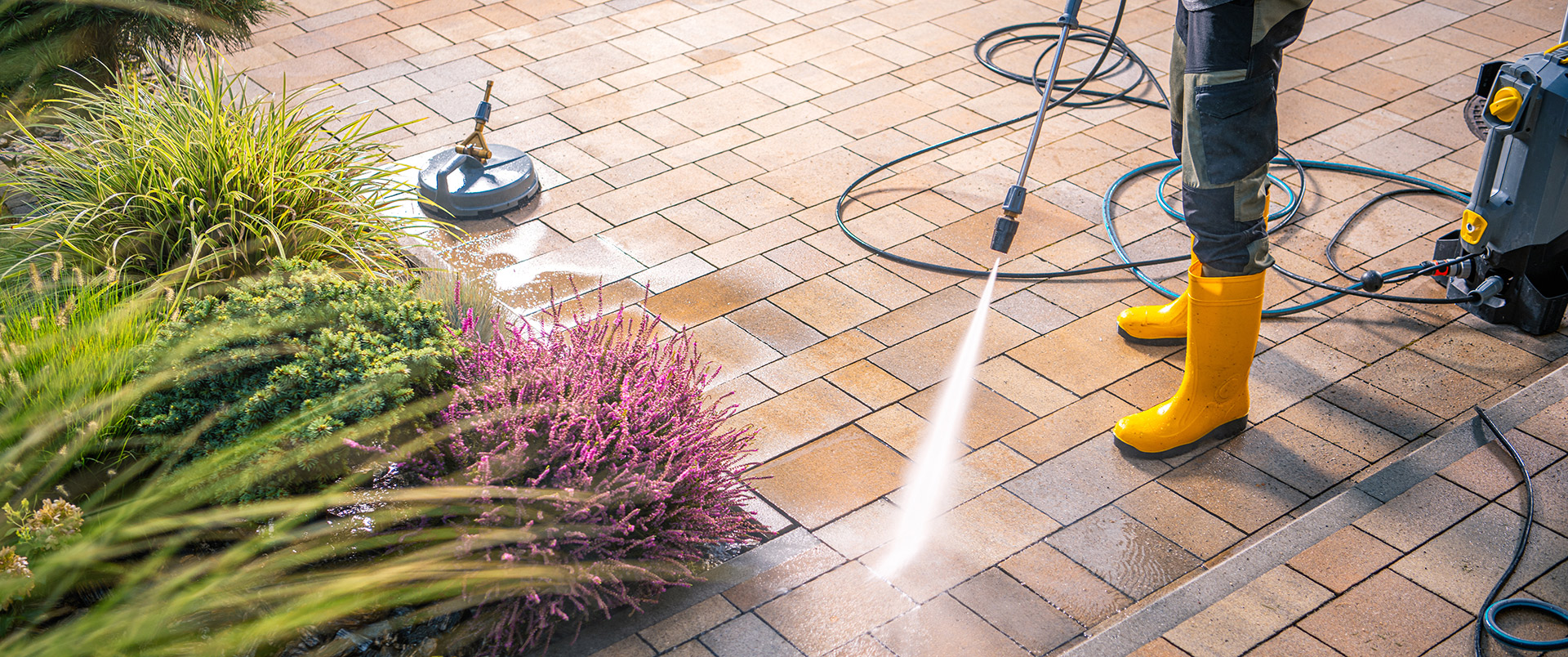The Importance of Power Washing Your Paver Driveways, Patios & Hardscapes
Your paver driveways, patios and walkways are more than just functional outdoor surfaces—they’re a significant investment in your home’s curb appeal and value. Over time, dirt, algae, moss, oil stains and general wear-and-tear can leave pavers looking dull, slippery and even damaged. Power washing is the most efficient way to restore the beauty, safety and longevity of your hardscapes.
1. Restore Curb Appeal
-
Remove Embedded Grime: Everyday foot and vehicle traffic tracks in dirt, mud and pollutants that settle between paver joints and on their surfaces.
-
Revive Vibrant Colors: A quick power wash can make reds, tans, and earth tones pop again—preparing your home for curb-side shine or the next family gathering.
-
First Impressions Matter: Whether you’re entertaining guests or listing your home for sale, a clean driveway and patio set the stage for a positive impression.
2. Prevent Damage & Extend Lifespan
-
Inhibit Growth of Moss & Algae: Organic growth retains moisture, which can lead to pavers shifting, cracking or even freezing damage in cooler months.
-
Eliminate Hazardous Stains: Oil, grease and rust can permanently etch pavers over time. Regular power washing lifts these contaminants before they cause deterioration.
-
Maintain Structural Integrity: By keeping sand joints free of debris and growth, you ensure pavers remain tightly interlocked—reducing settling and uneven surfaces.
3. Enhance Safety
-
Reduce Slip Risks: Wet, moss-covered pavers become slippery and dangerous, especially around pools or on walkways.
-
Improve Visibility: Clean surfaces reveal painted lines, edging and contrast, helping guests and family members navigate your outdoor spaces safely.
4. Health & Hygiene Benefits
-
Eliminate Allergens: Pollen, mold spores and mildew thrive in dirty, damp paver joints. Power washing removes these triggers to create a healthier outdoor environment.
-
Keep Pests at Bay: Mosquitoes and ants prefer damp, shaded crevices. Clearing away organic buildup makes your patio less appealing to unwanted visitors.
5. DIY vs. Professional Power Washing
| Factor | DIY Approach | Professional Service |
|---|---|---|
| Equipment | Consumer-grade washer (1,200–2,000 PSI) | Commercial-grade washer (up to 4,000 PSI) |
| Technique | Risk of uneven cleaning or paver damage without training | Trained technicians adjust pressure, angle & distance |
| Time & Effort | Several hours for average driveway/patio | Efficient team can finish same job in under an hour |
| Protective Measures | Must purchase personal PPE and detergents | Includes eco-friendly detergents and full safety setup |
| Long-Term Maintenance | Requires scheduling and rental logistics | Often includes seal-coating and joint sand replenishment |
Tip: If you choose DIY, always test a small inconspicuous area first, keep the nozzle at least 12″ away, and work in straight, overlapping strokes.
6. How Often Should You Power Wash?
-
Residential Driveways: Annually, preferably in spring.
-
Shaded Patios & Walkways: Every 6–9 months, especially if near trees or water features.
-
High-Traffic Commercial Areas: Quarterly, to maintain appearance and safety standards.
7. Beyond Cleaning: Seal & Protect
After power washing, consider applying a quality paver sealer. Sealing:
-
Locks in the renewed color and shine
-
Prevents future stains from penetrating
-
Binds sand between joints to keep pavers firmly in place
Power washing your paver driveways and patios is an affordable way to restore beauty, protect your investment and ensure a safe, healthy outdoor environment. Whether you’re looking to DIY or prefer the expertise of a professional team, regular cleaning and maintenance will keep your hardscapes looking like new for years to come.


